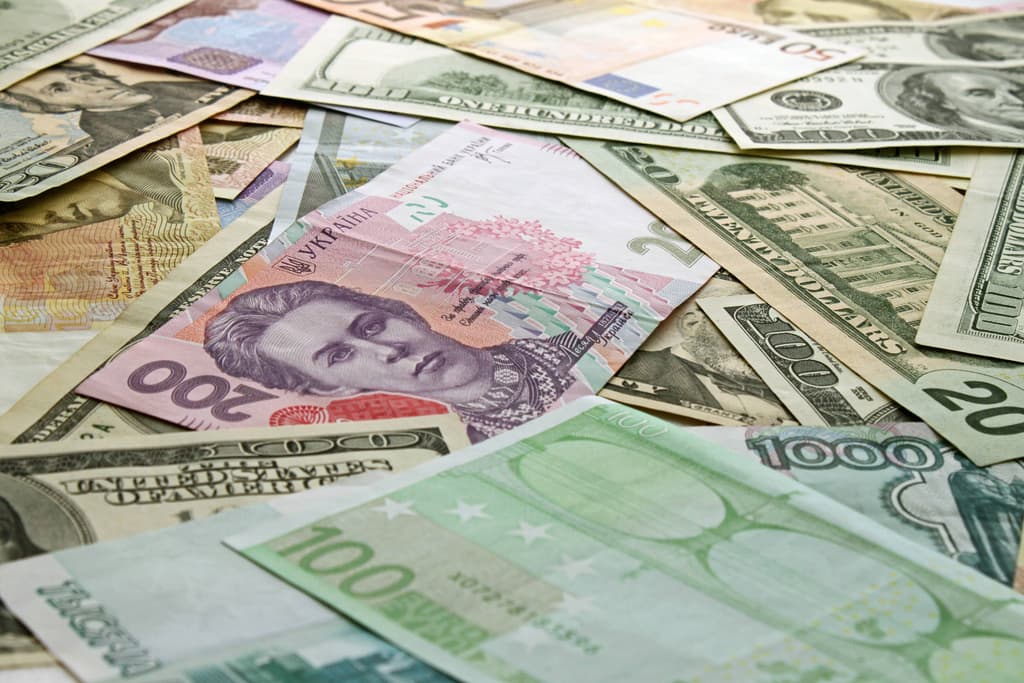How Converting Currency Can Help You Invest Worldwide

Investing globally can seem like a complex and challenging task to take on, but it doesn’t have to be. One important step in this process is converting currency, which opens the door to a wealth of opportunities beyond your home country. This article will discuss the benefits of converting currency and how it can help you diversify your investments worldwide. We have also included a currency conversion calculator in this article.
Table of Contents
- Introduction
- Why Consider Global Investments?
- Understanding Currency Conversion
- The Process of Converting Currency
- Choosing the Right Time to Convert
- Avoiding Common Pitfalls
- How Currency Conversion Impacts Returns
- Tools and Resources for Currency Conversion
- Real-Life Examples of Successful Investments
- The Role of Currency Exchange Rates
- Tax Implications of International Investments
- Future Trends in Currency Conversion
- Conclusion
- FAQs
Introduction
In a rapidly globalizing world, the ability to invest across borders is more accessible than ever. Yet, one crucial element that can either make or break your international investment strategy is currency conversion. This article will explore how converting currency can enhance your investment opportunities, provide practical tips, and help you avoid common mistakes. By the end of this article, you’ll have a solid understanding of how to navigate the world of currency conversion to maximize your global investment returns.
Why Consider Global Investments?
Investing globally allows you to diversify your portfolio, reducing risk and potentially increasing returns. By converting currency, you can tap into emerging markets, benefit from different economic cycles, and access unique investment opportunities that are not available in your home country.
Understanding Currency Conversion
Currency conversion is the process of exchanging one currency for another. This is essential for international investments as it enables you to purchase assets in foreign countries. For instance, if you want to invest in European stocks, you need to convert your home currency into euros.
The Process of Converting Currency
The process of converting currency involves several steps:
- Determine the Amount: Decide how much money you need to convert.
- Choose a Provider: Select a bank or currency exchange service.
- Check Exchange Rates: Look for the best exchange rates.
- Complete the Transaction: Exchange your currency through the chosen provider.
Choosing the Right Time to Convert
Timing is crucial when it comes to currency conversion. Exchange rates fluctuate due to various factors, including economic conditions, political events, and market speculation. By monitoring these factors, you can choose the best time to convert currency, maximizing the value of your investment.
Avoiding Common Pitfalls
When converting currency for investment purposes, it’s important to avoid common pitfalls such as:
- High Fees: Some providers charge high fees for currency conversion.
- Poor Exchange Rates: Not all exchange rates are created equal. Shop around for the best rates.
- Timing Mistakes: Converting at the wrong time can result in significant losses.
How Currency Conversion Impacts Returns
Currency conversion can significantly impact your investment returns. If the foreign currency strengthens against your home currency, your investment value will increase. Conversely, if the foreign currency weakens, your returns may diminish.
Tools and Resources for Currency Conversion
Several tools and resources can help you navigate currency conversion, including:
- Currency Converter Apps: These apps provide real-time exchange rates and conversion calculations.
- Financial News Websites: Stay updated on economic trends and events that affect exchange rates.
- Investment Advisors: Professional advisors can offer tailored advice on currency conversion and international investments.
Real-Life Examples of Successful Investments
Consider the example of an investor who converted USD to Japanese yen to invest in Japanese tech stocks. Due to favorable exchange rates and the growth of the tech sector, their investment yielded significant returns. Another example is investing in European real estate after converting currency to euros, benefiting from both property appreciation and favorable exchange rates.
The Role of Currency Exchange Rates
Currency exchange rates play a pivotal role in international investments. Understanding how these rates are determined and what factors influence them is crucial for making informed investment decisions. Exchange rates are influenced by interest rates, inflation, political stability, and overall economic performance.
Tax Implications of International Investments
When investing internationally, it’s important to understand the tax implications of currency conversion. Different countries have varying tax laws regarding foreign investments. Consulting with a tax professional can help you navigate these complexities and ensure compliance with all regulations.
Future Trends in Currency Conversion
The future of currency conversion is likely to be shaped by technological advancements and global economic shifts. Digital currencies and blockchain technology are poised to revolutionize the way currency conversion is conducted, making it faster, cheaper, and more secure.
Conclusion
Converting currency is a gateway to global investment opportunities. By understanding the process, timing your conversions wisely, and utilizing the right tools, you can maximize your investment returns and diversify your portfolio. The world is full of investment opportunities waiting to be explored, and currency conversion is your ticket to accessing them. We have included a currency conversion calculator below along with common asked questions.
FAQs
1. What is currency conversion?
Currency conversion is the process of exchanging one currency for another, which is essential for international investments.
2. How do exchange rates affect my investments?
Exchange rates can impact the value of your international investments. A favorable exchange rate can increase your returns, while an unfavorable rate can decrease them.
3. What are some common pitfalls in currency conversion?
Common pitfalls include high fees, poor exchange rates, and timing mistakes. It's important to shop around for the best rates and monitor market conditions.
4. Are there tools to help with currency conversion?
Yes, there are various tools such as currency converter apps, financial news websites, and professional investment advisors that can assist with currency conversion. We have listed a currency conversion calculator within this post.
5. What are the tax implications of international investments?
Tax implications vary by country. It's important to consult with a tax professional to understand the regulations and ensure compliance when investing internationally.

